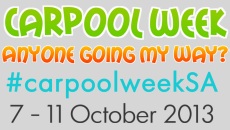The End of the Line, the first major documentary film revealing the impact of overfishing on our oceans, had its world premiere at the Sundance Film Festival in January this year.
Based on environmental journalist Charles Clover`s book, it`s a disturbing and powerful film about one of the world`s most shockingly ignored problems, overfishing.
For centuries we€™ve assumed the ocean€™s resources to be limitless €“ we can take what we like but there will always be €˜plenty more fish in the sea€™. Now we know better €“ advances in fishing technology and too many boats chasing too few fish mean that we€™re now on the verge of losing whole species of wild fish; over the past century our fishing fleets have emptied the seas so successfully that many stocks of familiar fish such as cod, tuna and salmon are close to collapse.
The situation is so grim that unless we change our wasteful and destructive ways we could see fish stocks collapse around the world. We can€™t afford to lose this essential food source €“ an estimated 1 billion people worldwide depend on fish for their main source of protein. Hundreds of other €˜non-food€™ species are also threatened because they are victims of industrial fishing methods, €˜accidentally€™ caught in nets and on long-lines, then thrown back into the sea dead or dying.
the relentless quest
The End of the Line examines what we are doing in our relentless quest to catch fish, and points the finger at politicians, Based on environmental journalist Charles Clover€™s book, it€™s a disturbing and powerful film about one of the world€™s most shockingly ignored problems €“ overfishing. corporations and restaurateurs who are to blame. Take a look at the trailer and you€™ll see that this is more than just another film; it carries campaigning messages very similar to Greenpeace€™s oceans€™ campaign €“ calling for the sustainable consumption of fish, for large-scale marine reserves to allow the seas to recover, and for a new ethic of responsible fishing.
The End of the Line will be released worldwide in 2009 using multiple formats and venues including theatres, broadcast and cable television networks, film festivals, online video campaigns, aquariums, museums and special screenings for environmental and educational organisations.
We think it is essential viewing, and Greenpeace is proud to be supporting it. It is important that lots of people get to see the film, and get the message. Help us spread the word!
Willie Mackenzie, Greenpeace, London, This e-mail address is being protected from spambots. You need JavaScript enabled to view it .









